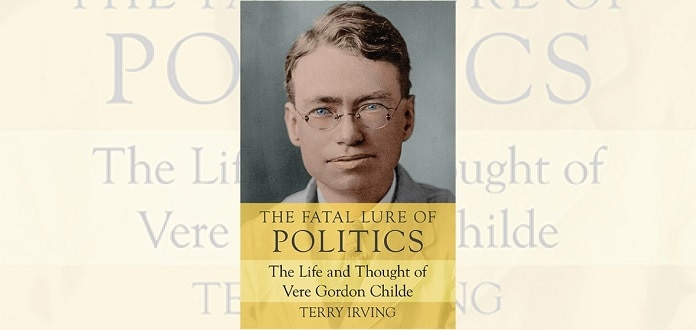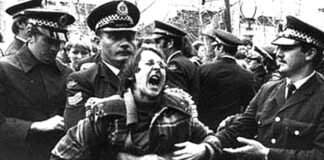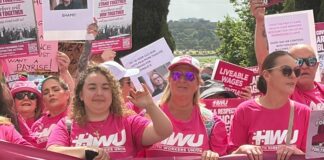Radical historian Terry Irving’s new biography of Vere Gordon Childe is an important contribution to understanding the Left in Australia. Irving uncovers Childe’s two careers, the first as a labour intellectual in Australia and Britain, during the turbulent years of the First World War until 1924, and the second from 1925-1957 as archaeologist, prehistorian and linguist.
Irving’s biography brings to life the whole person, exploring a complex intellectual and personal life, confirming Childe’s place in the Left, an unorthodox Marxist, and a socialist anti-war and anti-racism activist.
Irving writes: “As the First World War was ending, Childe wrote to an academic mentor in Britain that he intended to return there ‘to escape the fatal lure of politics’ in Australia. Ten years later he was well into an academic career … but throughout that career politics continued to lure him.”
Childe was the first exponent of Marxist archaeology in the western world. In his writings he made archaeology more accessible to laypeople, starting with Man Makes Himself (1936) and What Happened in History (1942). Childe remains the world’s most widely read archaeologist.
His archaeological work reinforced his anti-racism, as when he argued that the West was “indebted to the Orient for the rudiments of the arts and crafts that initiated man’s emancipation from bondage to his environment and for the foundation of those spiritual ties that co-ordinate human endeavours … But the peoples of the West were not slavish imitators; they adapted the gifts of the East and united the contributions made by Africa and Asia into a new and organic whole capable of developing on its own original lines”.
Childe was born on 14 April 1892 in Sydney into a conservative Christian family. He studied at the University of Sydney, winning a scholarship to Oxford University (1914-17).
Childe cut his radical teeth in 1913 as a supporter of 2000 gas workers who took illegal unofficial strike action against the NSW ALP government. Rank-and-file rebelliousness combined with political experience in the Left and labour movement would shape Childe’s thinking.
In Oxford, Childe learnt about guild socialism, a movement advocating workers’ control of industry and co-operatives, and joined the revolutionary wing of a socialist club. He defended jailed conscientious objectors during the First World War and supported strikes by 200,000 workers across Britain in May 1917.
Returning to Australia until late 1921, he witnessed a massive strike wave during the 1919 influenza pandemic and became adviser to Labor leader John Storey, the NSW premier from March 1920.
In 1923 he published his authoritative analysis of parliamentarism and labourism, How Labour Governs: A Study of Workers’ Representatives in Australia, which remains available today. It offers a forensic study of the ALP and trade union movement, showing the need for revolution to build a “proletarian democracy” – to end the “exploitation and enslavement of the workers” – because of the failure of “politicalism”, a term he coined to criticise the actual experience of labour movement representation.
Childe developed his analysis further, arguing as Irving puts it that “it was fatuous to promise, as Labor did, to transform capitalism by evolutionary means”. Even the most radical left-wing governments could not control the economy nor the state. The movement that created the ALP with the objective of eliminating exploitation “would have to go further”.
How Labour Governs also opposed racial prejudice and the nationalism and jingoism of the times, which “found its natural political exponent in the Labour Party”. He argued for a non-discriminatory conception of progress, as illustrated when he wrote about Aboriginal Australia (which he did not formally study) in Man Makes Himself in 1936: “Why assume that, when the Arunta had created a material culture adapted to their environment, they at once stopped thinking altogether? They may have gone on thinking just as much as our own cultural ancestors, although their thoughts followed different lines.”
Irving uncovers the life of one of the world’s most important intellectuals, who challenged archaeologists, historians and socialists, and defied attempts by wartime states to deny civil liberties and academic freedom. Childe’s attitude to both the Soviet Union and Stalinism was inconsistent. Childe felt he was in a different tradition and never used Stalinist jargon.
As the world once again moves toward reaction and social democratic parties disappoint, Childe’s anti-determinist Marxism remains relevant for socialism in the 21st century.
This is an adapted version of Judy McVey’s article in International Socialism Journal No. 169.
Terry Irving, The Fatal Lure of Politics: The Life and Thought of Vere Gordon Childe, Monash University Publishing (2020), $39.95.






